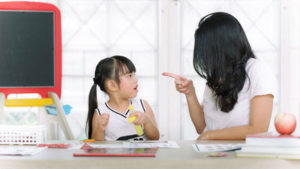 * Being fully present in the HERE and NOW has great benefits.
* Being fully present in the HERE and NOW has great benefits.
* Being present means fully experiencing what you are doing, thinking and feeling in the moment and not letting worry, fearful and angry thoughts distract you.
* A good technique to stay in the present is to breath slowly and deeply. Inhale for 3-4 counts and exhale for the same length of time, for 10 rounds. Then carry on breathing deeply for another 10 rounds. Continue the practice for a total of 3 to 5 minutes. Whenever anxious, fearful or angry thoughts enter your mind, let them go and refocus on your breathing.
* This practice, known as meditation, is today also called mindfulness.
* Practicing mindfulness lowers your anxiety and anger levels.
* It allows you to put a distance between you and your thoughts and gain perspective.
* Mindfulness also slows you down and minimizes impulsivity.
* It reminds you that afterall, these are just thoughts and are not you.
Sources:
Dialectical Behavior Therapy for At-Risk Adolescents by P. Harvey & B. Rathbone, 2013
The CBT Anxiety Solution Workbook, M. Mckay, M. Skeen & P. Fanning, 2017
The Mindfulness & Acceptance Workbook for Social Anxiety & Shyness by J. Fleming, N. Kocovski, 2013

 When reprimanding, scolding your child (or giving feedback to a colleague or subordinate), it is best to remember the following:
When reprimanding, scolding your child (or giving feedback to a colleague or subordinate), it is best to remember the following: